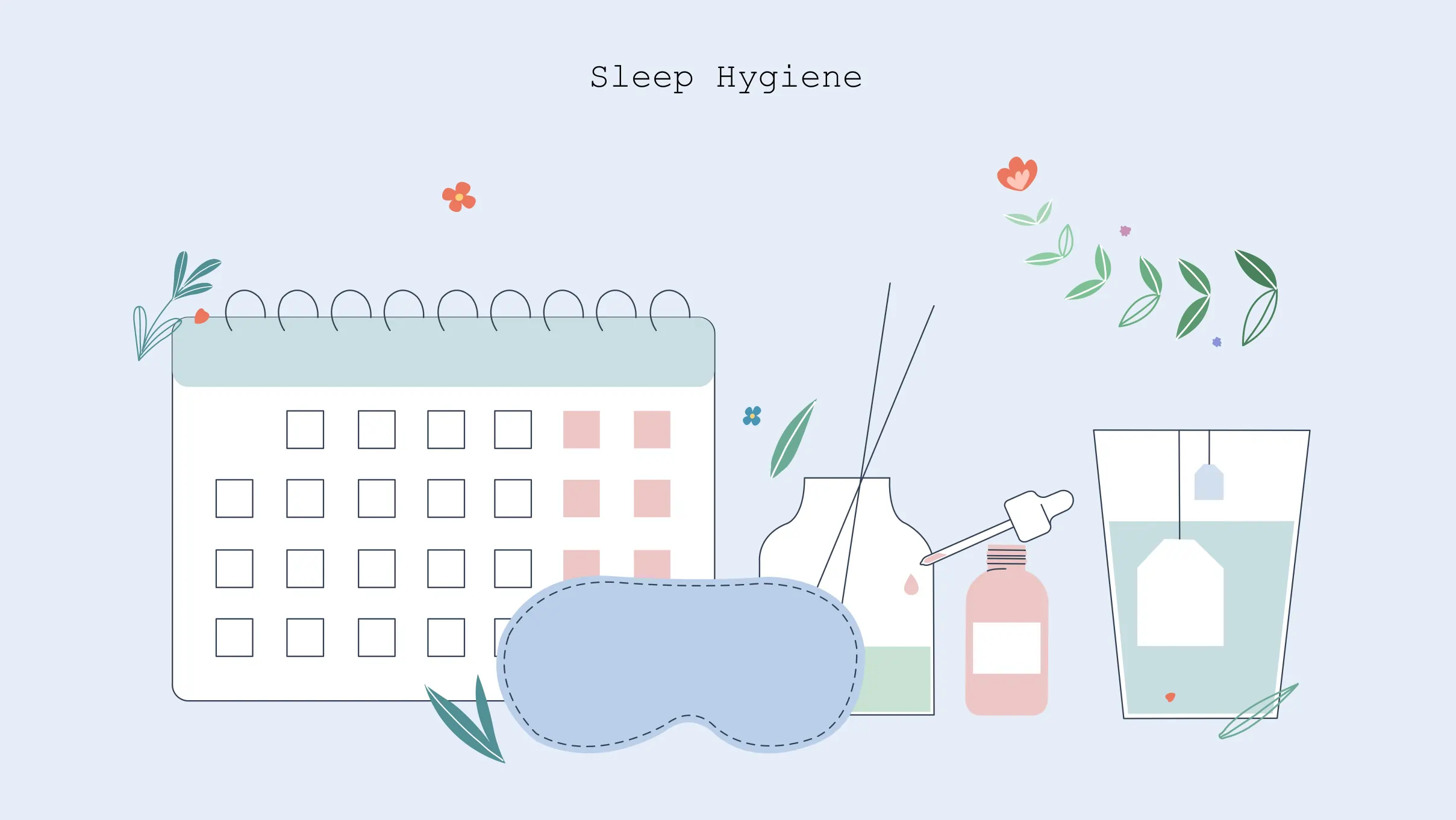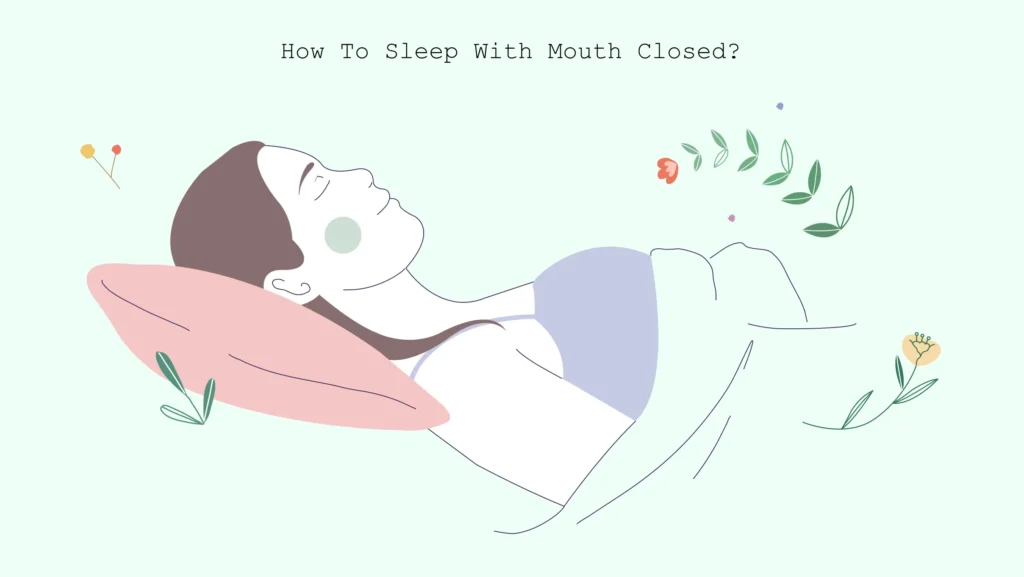10 Effective Sleep Hygiene Tips – Part 1
Written by

Medical reviewed by


Table Of Content
Good sleep is imperative for our health and well-being. Yet, while we all doze off, a good quality sleep is a gift that few are blessed with. If you struggle with poor sleep quality, paying attention and revamping your sleep hygiene is the best way to achieve deep, restful sleep.
Here, Sleep Guides India unravels what sleep hygiene is and how to sleep better.
What is Sleep Hygiene?
Sleep Hygiene can be defined as healthy sleep habits that help promote good sleep. It is the behavioural interventions and modifications you inculcate to experience more restful sleep.
Sleep hygiene includes all those science-backed practices you adopt during the daytime and before retiring to bed that create all the difference between a restless night and a restful one.
Why is Sleep Hygiene Important?
Do you know that according to a Fitbit study, India is the second most sleep-deprived country in the world after Japan? Moreover, sleep quality is grim in both adults and adolescents. It explains why our country’s population’s physical and mental health is of great concern. Sleep hygiene is the best way to turn things around.
Good quality sleep is crucial for mental and physical health, including increased productivity and better-quality life. Sleep hygiene can do that effortlessly.
Another advantage of sleep hygiene is that it virtually costs nothing. Adopting better sleep hygiene is the key to counteracting leading physical and mental problems, including critical issues like insomnia and other sleep disorders.
Given that, let’s check out 20 tips for sleep hygiene that can effectively turn poor sleep hygiene into a good one.
Keep a Consistent Sleep Schedule
Going to bed and waking up at the same time, even on weekends, constitutes your sleep schedule. Sticking to it sets your inner body’s clock right. You can, at the most, have a buffer of 20 minutes. Once your internal clock is set right, you will start sleeping at the same time and enjoy a restful sleep. Even if you sleep less at night, you will develop a sleep drive to help you consolidate sleep the following night.
Create a Bedtime Routine and Follow It
Creating a relaxing bedtime routine helps you relax and send messages to your brain that it’s time to sleep. You can start the routine an hour before you go to bed. A few tips that you can follow for better sleep are:
- Take a warm bath.
- Practice breathing exercises for sleep, or meditation.
- Practice gentle stretches that help your muscles relax and drain off body tension.
- Listen to some soft, soothing music.
- Read a book.
Turn Off Electronic Devices Before You Go to Sleep
All electronic devices emit a blue light, known to alert your brain and reduce the melatonin levels in your body. The reduction of melatonin makes sleeping difficult and causes frequent sleep disruption. That is why you should not sleep with the mobile nearby as it can cause sleep disturbance and make you restless.
Exercise Regularly
Exercising regularly keeps your body and mind fit and induces more healthy sleep. If possible, exercising in natural light reaps more benefits. It helps you sleep easily and decreases the number of times you wake up at night.
The only precaution you must follow is not to exercise at least a couple of hours before bed. It alerts your mind and increases your heart rate, which makes sleeping difficult.
Limit Your Caffeine Intake
Caffeine is a known stimulant that alerts your brain and leaves you energised and active. Once consumed, its effect lasts from 3-7 hours in your body. Hence, if you consume coffee late evening or after dinner, you are likely to be more alert and energetic at night and face trouble sleeping.
Avoid Alcohol
While alcohol may initially make you feel drowsy and help you fall asleep faster, it can interfere with your sleep quality and cause you to feel more tired in the morning. Here’s why:
It disrupts your sleep patterns by decreasing the amount of time you spend in restorative deep sleep and increasing the amount of time spent in restless night sleep.
Alcohol can also cause you to wake up frequently during the night, interfering with the sleep continuity and giving you nightmares. Not just this, it can also relax the muscles in your throat, causing you to snore.
Avoid Eating Right Before Bed
Eating right before bed can disrupt your sleep and affect your sleep quality. When you eat, your body increases its metabolic rate to digest the food, and this can make it difficult to fall asleep. Eating high-fat or spicy foods can also cause indigestion, heartburn, or acid reflux, interfering with your ability to sleep.
Moreover, lying down after a large meal can increase the risk of gastroesophageal reflux disease (GERD). Additionally, consuming sugary or caffeinated foods or beverages before bed can lead to an energy spike, making it difficult to fall asleep. To ensure a restful night’s sleep, it’s best to avoid eating for at least two to three hours before bedtime.
Don’t Stay in Bed Awake for More Than 5-10 Minutes
It is advisable not to toss and turn into your bed and become a night-time clock-watcher. It will only increase your stress and make sleeping difficult.
In case you cannot sleep or get back to it after sleep disruption, it’s best to get out of bed and indulge in activities like reading, listening to soothing music, etc. You will soon have your eyelids drooping. Then retire to bed.
Optimise Your Bedroom
Optimising your bedroom is another way to induce sleep. The room should be made dark with complete black-out curtains. Ambient, dim light should be used at night.
The room should also be cool with a temperature of around 19 to 24 degrees Celsius, which is most conducive to sleep. The room should be well-ventilated.
It is best to keep the pets outside. You should also try snoring remedies if you or your partner snores and disrupts sleep.
Avoid TV, and instead Read in Bed
As already stated, the TV emits a blue light that makes sleeping difficult. Hence, it should be avoided. However, if required, you can use the computer sparingly.
The best way to invite sleep is to read books. They are highly therapeutic, help you de-stress automatically and make you feel sleepy.
Conclusion
In conclusion, while we’ve covered important sleep hygiene tips in this article, there’s still more to explore. In Part 2, you’ll find additional valuable tips to improve your sleep quality, including creating a sleep-friendly environment and managing stress. Don’t miss out on these insights – continue reading in Effective Sleep Hygiene Tips – Part 2 for a deeper understanding of sleep hygiene and to enhance your overall well-being.
FAQs
What are the signs of poor sleep hygiene?
A few of the known and tell-tale signs of poor sleep hygiene are:
- Tossing and turning in bed.
- Takes a long time to fall asleep in bed.
- Frequent wake-ups during the night.
- Feeling fatigued, foggy, and drained of energy throughout the day.
- Slowed down reflexes and difficulty in making decisions or executing creative works.
- Feeling more anxious, stressed, and depressed.
If you are facing any of the symptoms, it’s time to become alert and focus on improving your sleep hygiene for better sleep.
What is unhealthy sleeping?
It constitutes all those habits that prevent you from having a reed, restful sleep. It indicates a lack of proper sleep hygiene and results in disturbed sleep, frequent wake-ups, etc., which leaves you tired, energy-less, and irritable in the morning.
people like this article
Written by

Medical reviewed by








